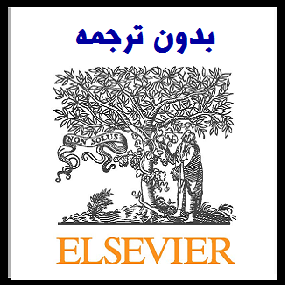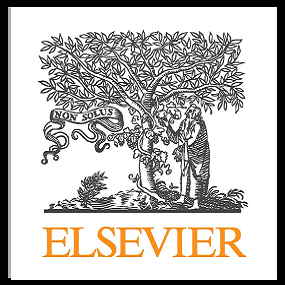دانلود رایگان مقاله ارزیابی اعتبار سهام مالی tweets – سال 2021


مشخصات مقاله:
عنوان فارسی مقاله:
ارزیابی اعتبار سهام مالی tweets
عنوان انگلیسی مقاله:
Credibility assessment of financial stock tweets
سال انتشار مقاله:
2021
کلمات کلیدی مقاله:
یادگیری ماشینی، یادگیری تحت نظارت، توییتر، بازار سهام مالی، انتخاب ویژگی ها
مناسب برای رشته های دانشگاهی زیر:
حسابداری
مناسب برای گرایش های دانشگاهی زیر:
حسابداری مالی
وضعیت مقاله انگلیسی و ترجمه:
مقاله انگلیسی را میتوانید به صورت رایگان با فرمت PDF با کلیک بر روی دکمه آبی، دانلود نمایید. برای ثبت سفارش ترجمه نیز روی دکلمه قرمز رنگ کلیک نمایید. سفارش ترجمه نیازمند زمان بوده و ترجمه این مقاله آماده نمیباشد و پس از اتمام ترجمه، فایل ورد تایپ شده قابل دانلود خواهد بود.
فهرست مطالب:
Abstract
Keywords
1. Introduction
2. Background
2.1. Tweet credibility
2.2. Feature selection for credibility assessment
3. Methodology
3.1. Stage 1 – Data collection
3.2. Stage 2 – Model preparation
3.2.1. Identification of stock exchange-specific tweets
3.2.2. Dataset annotation
3.2.3. Feature engineering and selection
3.3. Stage 3 – Model training
4. Proposed features
4.1. General features (GF)
4.1.1. Content
4.1.2. Context
4.1.3. User
4.2. Financial features (FF)
4.2.1. Content
4.2.2. Company-specific
4.2.3. Exchange-specific
5. Feature selection
5.1. Filter methods
5.2. Wrapper methods
6. Experimental design
6.1. Company selection
6.2. Data collection
6.3. Tweet annotation
6.4. Assessing feature importance
7. Experimental results & discussion
8. Conclusion
CRediT authorship contribution statement
Declaration of Competing Interest
Appendix A.
Appendix B.
References
قسمتی از مقاله انگلیسی:
1. Introduction
Investments made on stock markets depend on timely and credible information being made available to investors. Twitter has seen increased use in recent years as a means of sharing information relating to companies listed on stock exchanges (Ranco et al., 2015). The time-critical nature of investing means that investors need to be confident that the news they are consuming is credible and trustworthy. Credibility is generally defined as the believability of information (Sujoy Sikdar, Kang, O’donovan, Höllerer, et al., 2013), with social media credibility defined as the aspect of information credibility that can be assessed using only the information available in a social media platform (C. Castillo et al., 2011). People judge the credibility of general statements based on different constructs such as objectiveness, accuracy, timeliness and reliability (Sujoy Sikdar, Kang, O’donovan, & Höllerer, 2013). Specifically, in terms of Twitter, tweet content and metadata (referred to as features herein), such as the number of followers a user has, and how long they have been a member of Twitter have been seen as informative features for determining the credibility of both the content of the tweet, and the user posting it (de Marcellis-Warin et al., 2017). The problem with such features (namely a user’s follower count) is that they can be artificially inflated, as users can obtain thousands of followers from Twitter follower markets within minutes (Stringhini et al., 2013), giving a false indication that the user has a large follower base and is credible (De Micheli & Stroppa, 2013). Determining the credibility of a tweet which is financial in nature becomes even more challenging due to the regulators and exchanges need to quickly curb the spread of misinformation surrounding stocks. Specifically, Twitter users seeking to capitalize on news surrounding stocks by leveraging Twitter’s trademark fast information dissemination may be susceptible to rumours and acting upon incredible information within tweets (Da Cruz & De Filgueiras Gomes, 2013). Recent research has found that Twitter is becoming a hotbed for rumour propagation (Maddock et al., 2015). Although such rumours and speculation on Twitter can be informative, as this can reflect investor mood and outlook (Ceccarelli et al., 2016), this new age of financial media in which discussions take place on social media demands mechanisms to assess the credibility of such posts. Repercussions for investors include being cajoled into investing based on apocryphal or incredible information and losing confidence in using a platform such as Twitter if such a platform can be used by perfidious individuals with impunity (De Franco et al., 2007). Twitter does not just act as a discussion board for the investor community, but also acts as an aggregator of financial information by companies and regulators. The financial investment community is currently bereft of ways to assess the credibility of financial stock tweets, as previous work in this field has focused primarily on specific areas such as politics and natural disaster events (Alrubaian et al., 2018).




